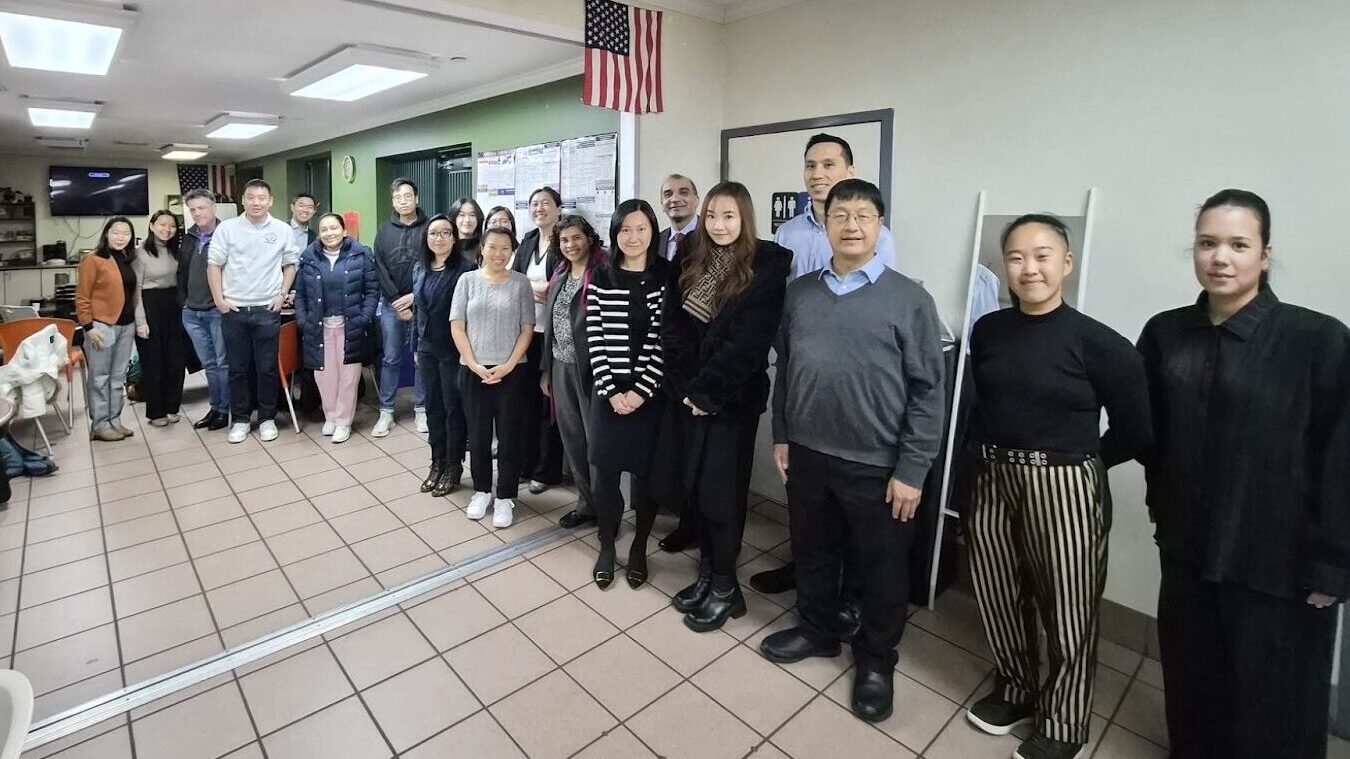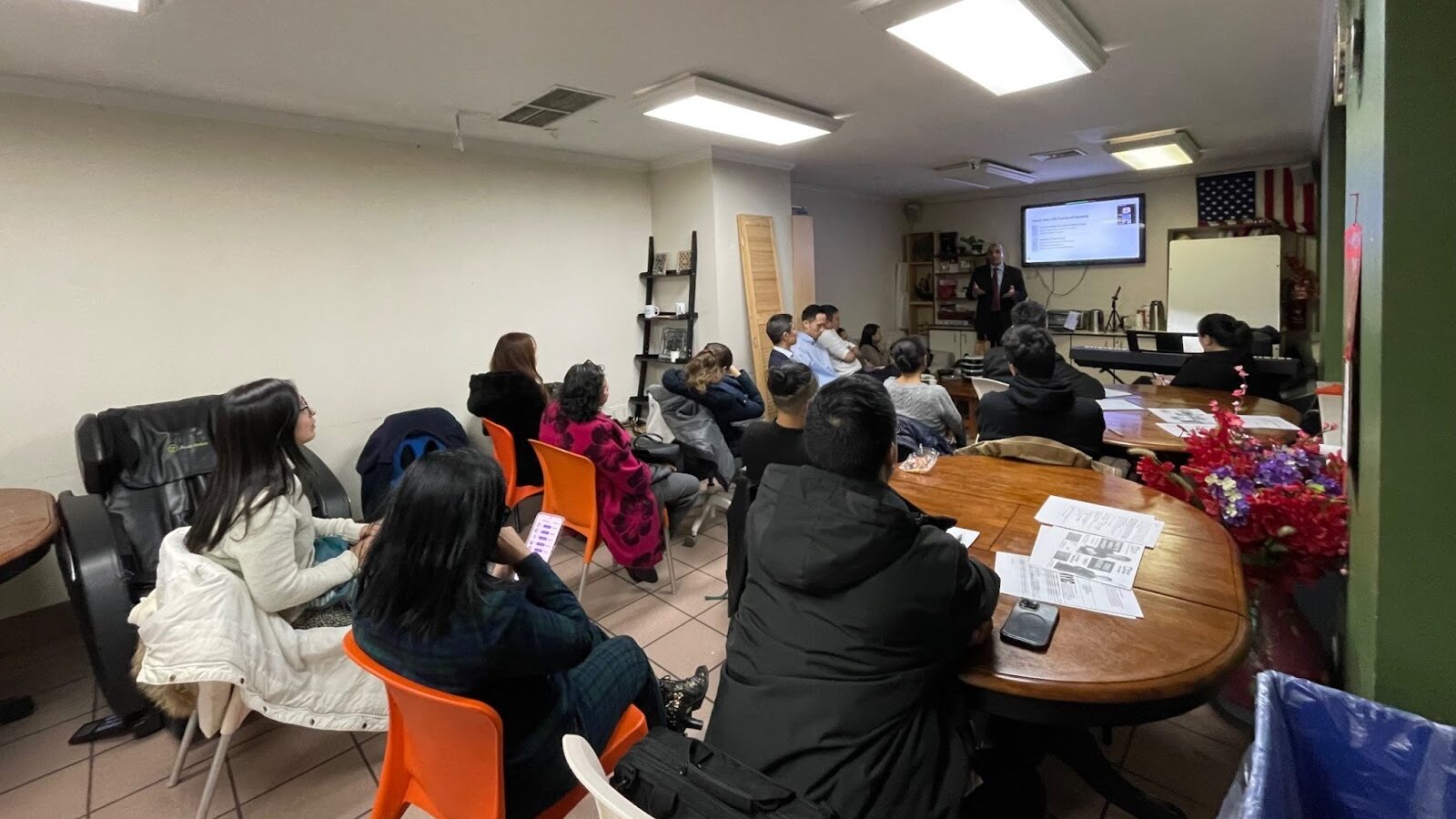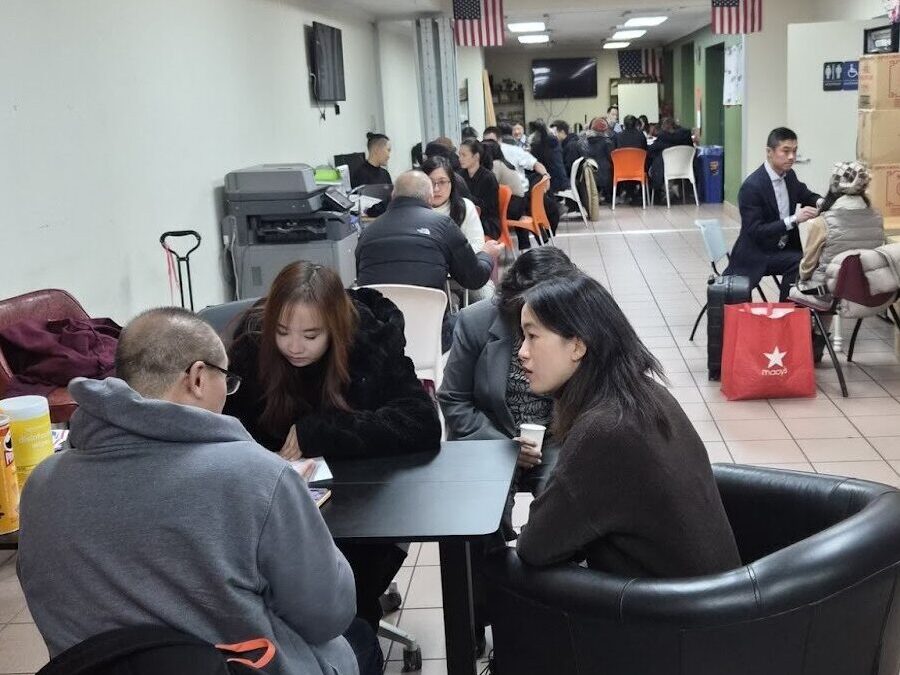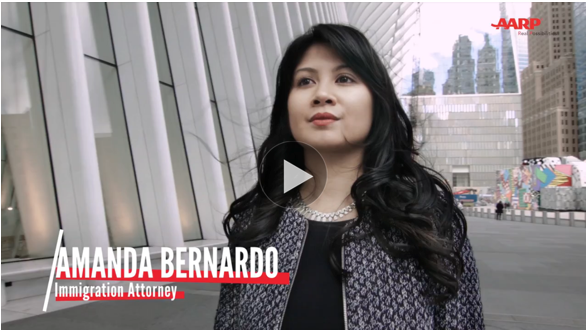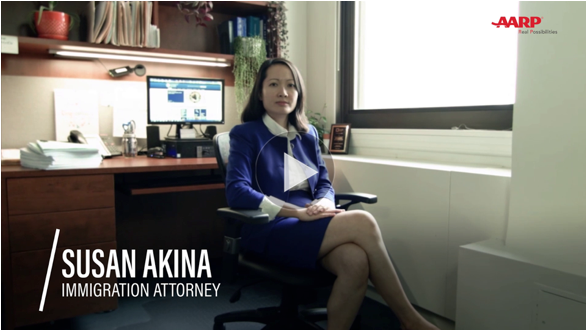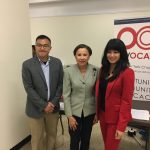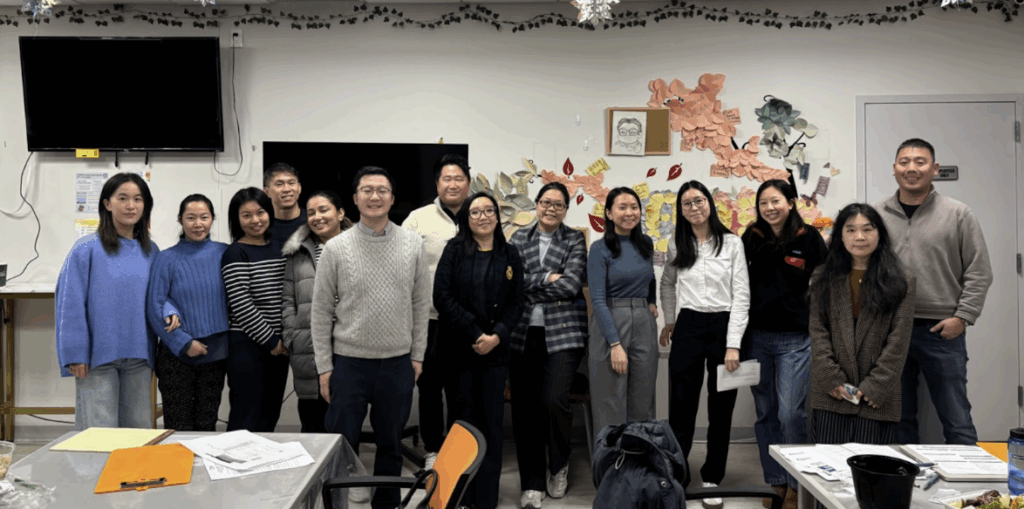
AABANY extends our sincere gratitude to the Asian American Law Fund of New York (AALFNY), Asian Americans for Equality (AAFE), Issues, Immigration, Pro Bono & Community Service (PBCS) Committees and our dedicated volunteers for your collaboration and contribution to the success of our pro bono legal clinic and immigration basic training Part 2 in Queens on December 3rd, 2025.
At the clinic, our volunteers met with 16 clients and provided guidance on a range of legal issues, including housing, immigration, employment and sexual discrimination, and civil litigation matters. Your collective efforts ensured that each client received personalized support and answers to their pressing legal questions.
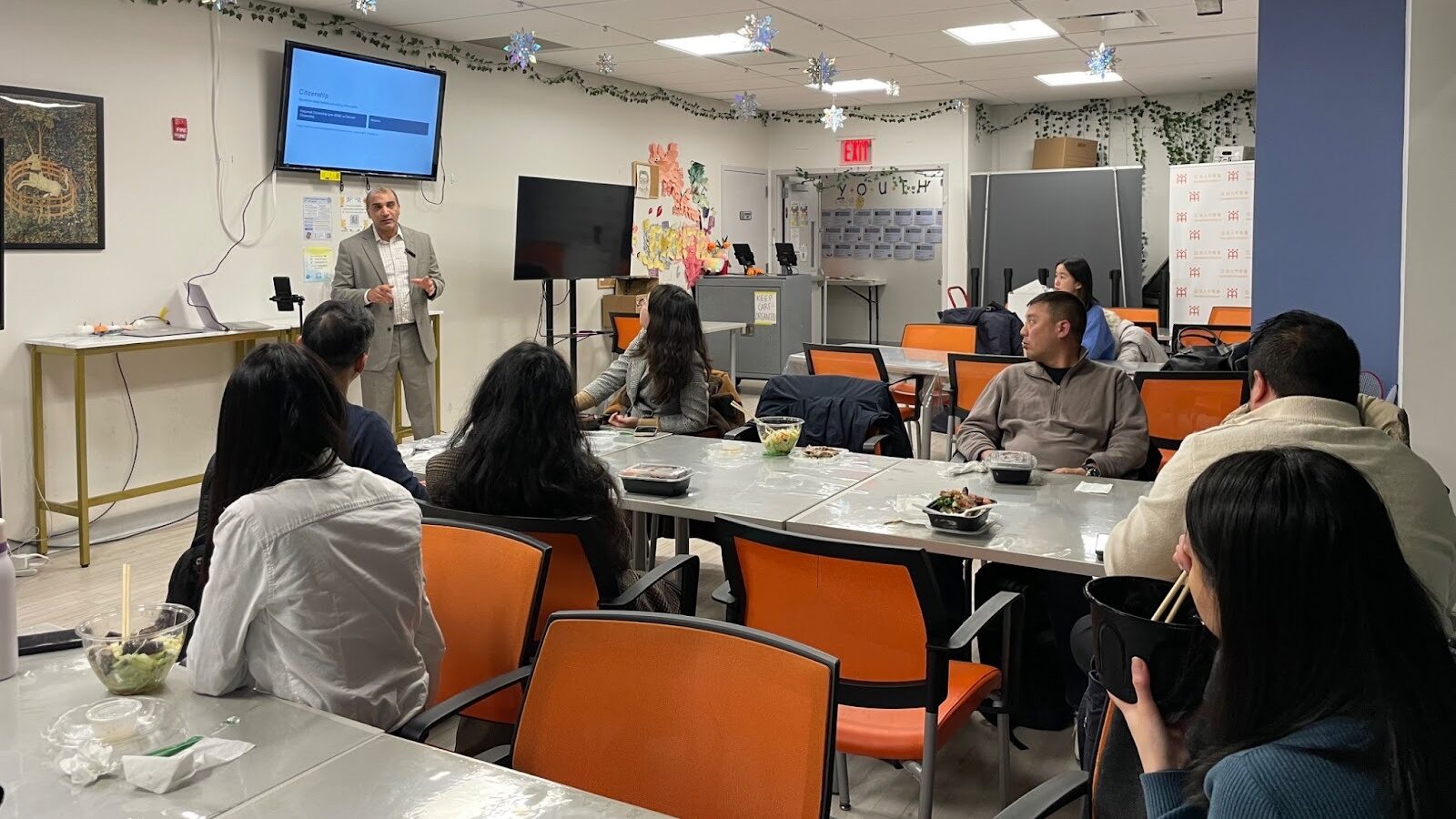
A big thank you to our guest speaker, Vishal Chander, for successfully presenting the second and final part of the two-part series training, “Immigration Basics for Pro Bono Clinic Lawyers.” This training was extremely valuable, giving attendees the key practice information they need, such as what to expect in an immigration proceeding and the different types of relief available in Immigration Court. Vishal’s presentation was insightful and useful, and we especially appreciate that he stuck around to answer the more complex questions, offering extra help to our community members and clients.
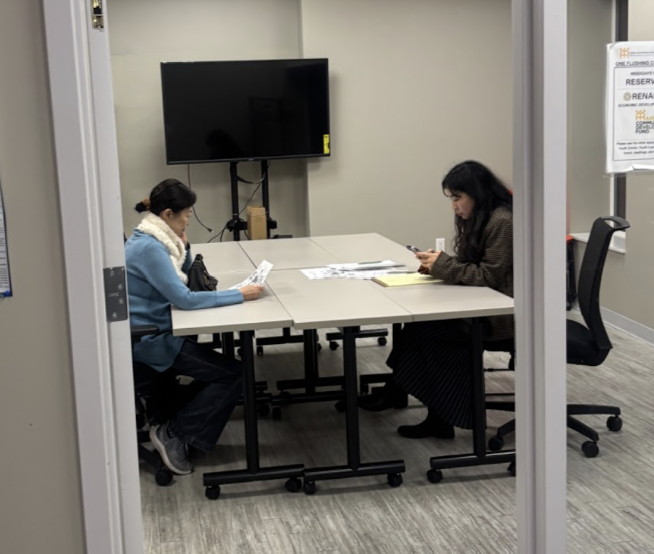
AABANY’s Fall 2025 Legal Intern, Jessie Zhou, volunteered at this Clinic and offered this reflection: “At the Queens Pro Bono Clinic, I witnessed two housing cases that revealed both the urgency of our work and the deep structural barriers that so many community members face. One involved an elderly couple who had fallen behind on rent but were terrified of the prospect of entering shelters or leaving Flushing, the only neighborhood where they felt linguistically and culturally safe. The other was a woman hoping to sue her former landlord for chronic noise disturbances that had caused significant distress and health issues, even though the events had taken place over a year ago. Both clients spoke little to no English, and despite the genuine hardship underlying each situation, the legal options available to them were severely limited. The attorneys walked them through their choices carefully and compassionately, yet the clients remained frustrated, continuing to voice anger and disappointment. It was hard not to feel the weight of their helplessness.”
“Moments like these remind me that many people come to Pro Bono Clinics not only for legal remedies, but for acknowledgment,” Jessie added. “Many people just want to feel heard, someone to listen, to affirm that what they endured matters. Their frustration is understandable; they are navigating a system that is complex, unforgiving, and shaped by structural inequities. In a society built on capitalist priorities, where the most vulnerable often fall through the cracks, our mission seems ever more important, and the Pro Bono Clinics become one of the few accessible spaces where marginalized individuals can be heard. Even when the law offers little recourse, showing up with patience, empathy, and respect remains an indispensable form of advocacy. The AABANY volunteers at the Queens Pro Bono Clinic strive to make others feel heard even when they can be misunderstood by their clients.”
We are deeply grateful for everyone’s presence and contributions, and look forward to continuing this important work together!
Volunteer attorneys:
| Vishal Chander |
| Ivy (Ting-Yu) Chien |
| Richard In |
| Beatrice Leong |
| Jie Shi |
| Lord Chester So |
| Anthony Wong |
| May Wong |
| Gary Yeung |
| Meng Zhang |
Interpreters/shadowers:
| Nandar Win Kerr |
| Nikita Kohli |
| Grace Ouyang |
| Wendy Zeng |
| Jessie Zhou |
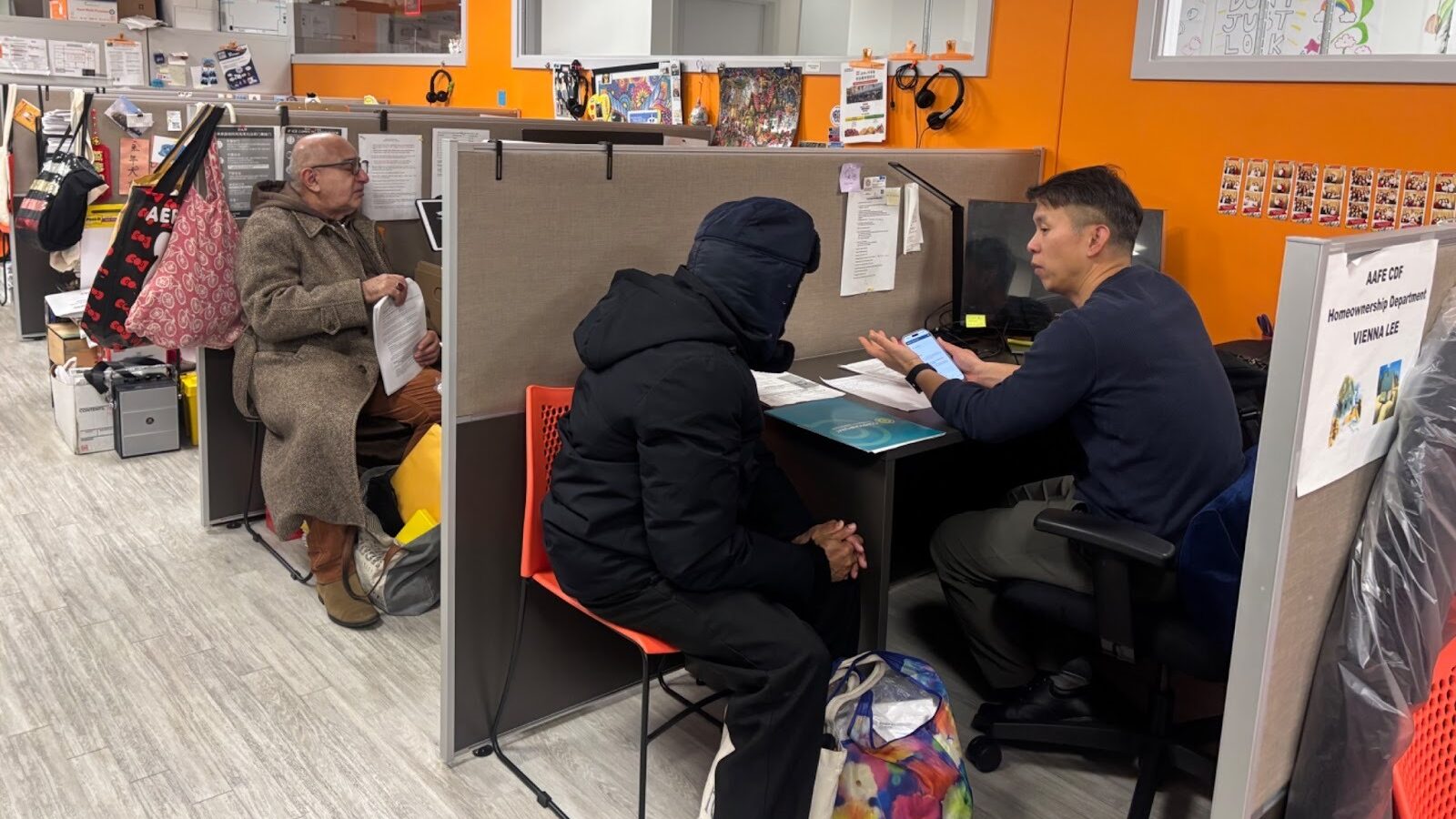
We invite you to continue supporting our community by joining us at our upcoming Pro Bono Clinics:
December 17th [Manhattan link here] from 6:30-8:30pm, AAFE Community Center, 111 Norfolk Street, NY, NY 10002
January 10th [Brooklyn link here], from 12:30 – 3:30pm, CPC Brooklyn Community Services, 4101 8th Avenue, Brooklyn, NY 11232
February 4th [Queens link here], from 6:30 – 8:30pm, AAFE One Flushing Community Center, 133-29 41st Ave, 2nd Floor, Flushing, NY 11355
Thanks to all our volunteers for attending the Pro Bono Clinic. We look forward to your participation in our future clinics! To learn more about the Pro Bono & Community Service Committee, visit probono.aabany.org.


